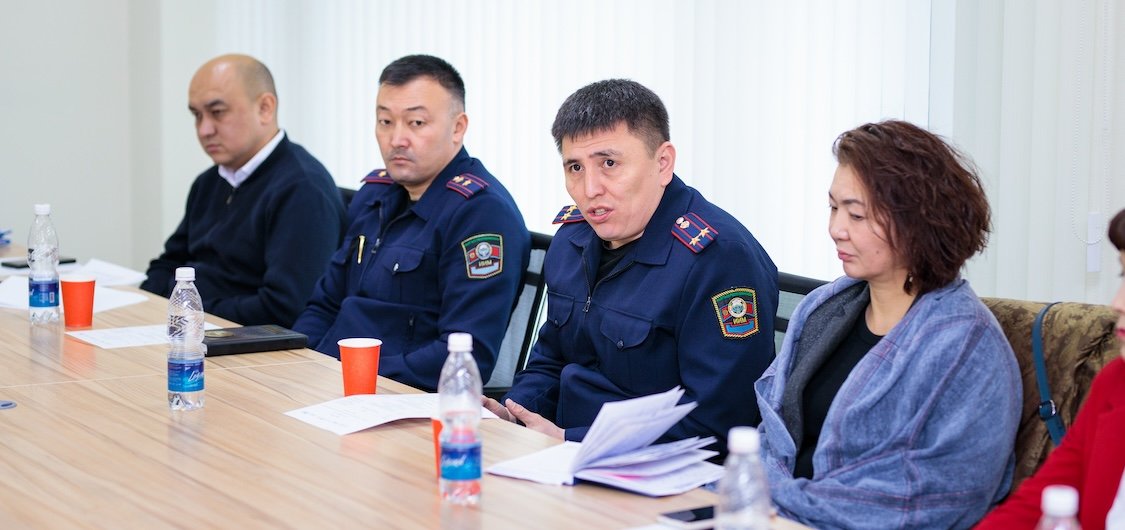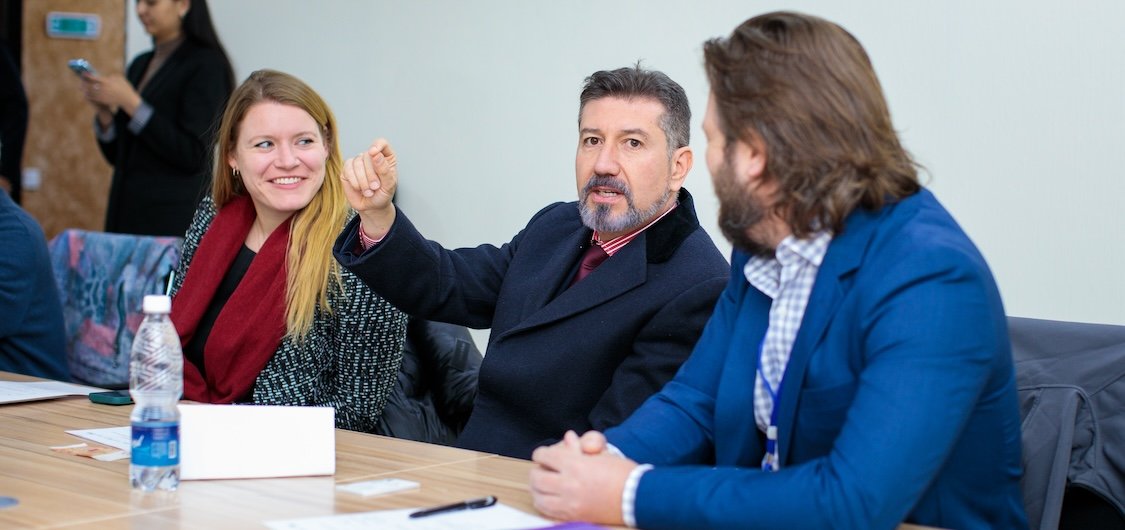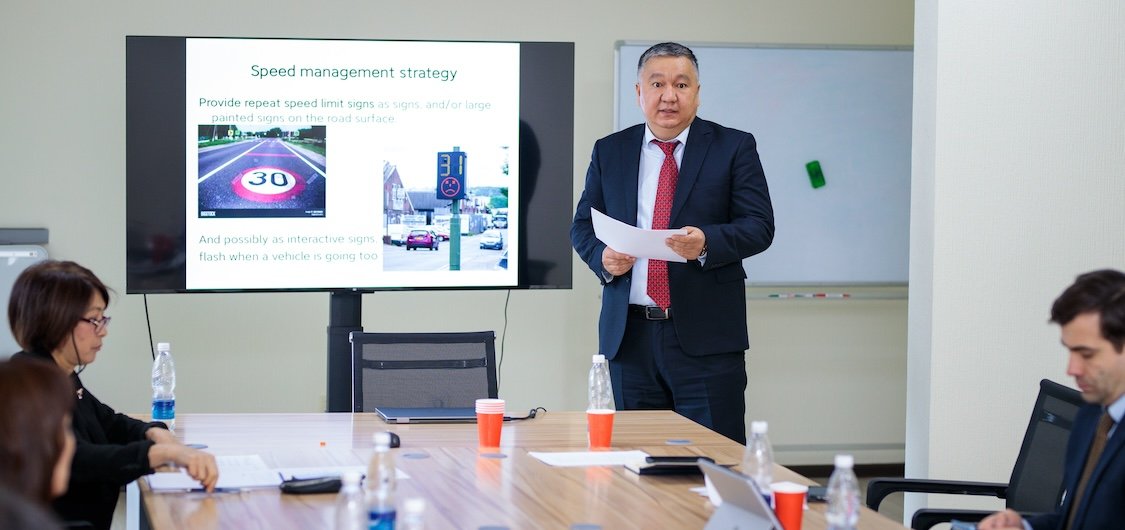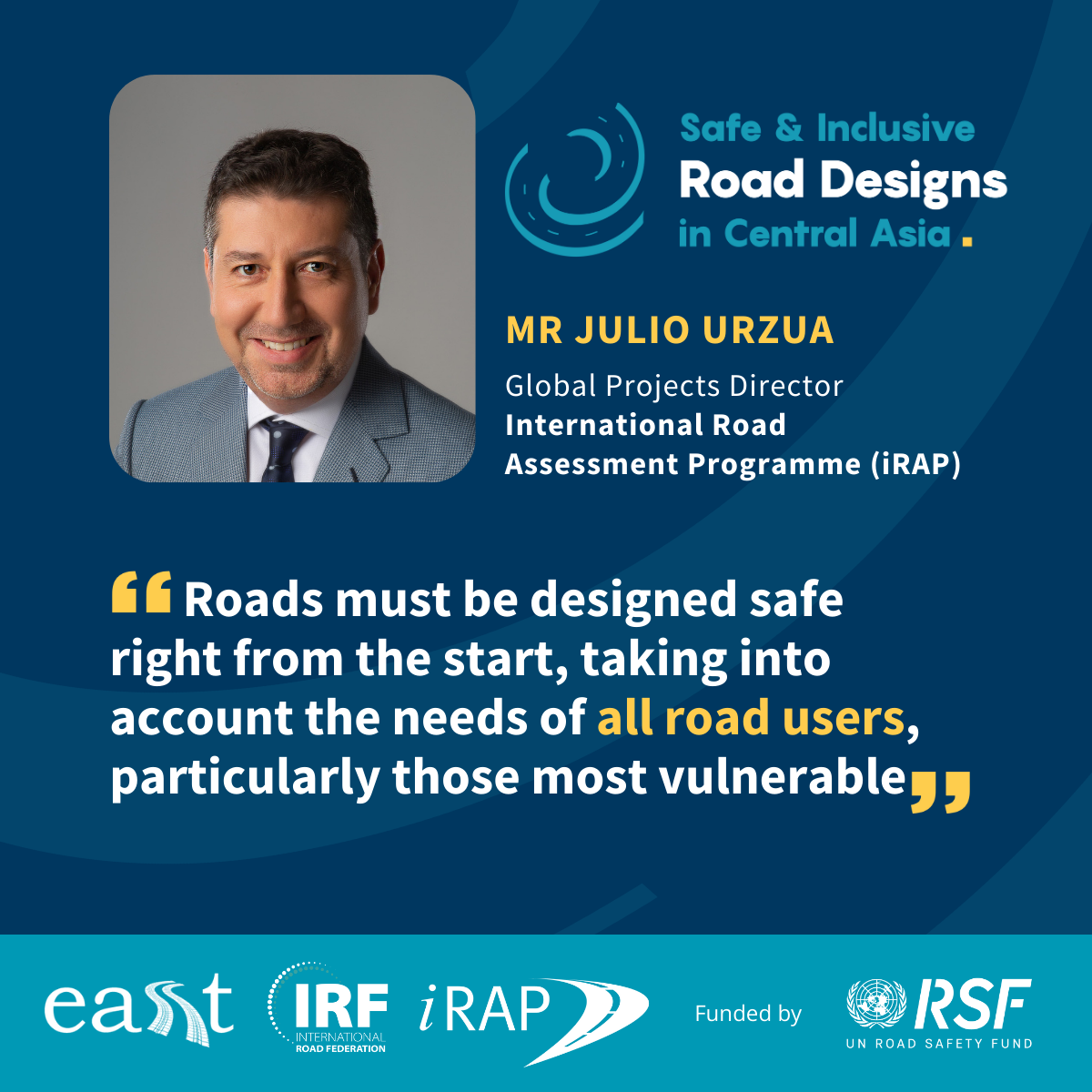First meetings are underway in Kyrgystan this week as part of a transformative project to improve road design standards across the Central Asia Regional Economic Cooperation (CAREC) countries – a new United Nations Economic and Social Commission for Asia and the Pacific (ESCAP) project being implemented by iRAP, EASST, and the International Road Federation (IRF).
Funded by the United Nations Road Safety Fund (UNRSF), the project focuses on three pilot countries – Kyrgyzstan, Tajikistan, and Uzbekistan – from within the CAREC region. Over the course of the next 18 months, the project will take a collaborative approach to meticulously review, update, and improve local road design standards.
The project team are travelling to each of the pilot countries this month to meet with local partners and relevant government agencies to introduce the project and explore local needs in terms of road design and mobility.
Meeting the project team in Kyrgyzstan this week, Ulan Sultanov, Deputy Director of the Kyrgyz Road Transport Project under the Ministry of Transport and Communication said:
“We welcome this project with great enthusiasm. At the moment, we use both old and new standards on road design in our work. We need to review and refine these standards, while also preparing new standard documents that address all issues, including safety and inclusivity for vulnerable road users.”
iRAP’s Global Project Director Julio Urzua and Global Operations Manager Luke Rogers are on-the-ground in Kyrgystan supporting training and technical delivery of the project.
“This project is a great demonstration of partnership and collaboration between international partners, experts and local teams from the Transport Ministries, design institutes, Police and local NGOs from the three participating countries,” Mr Urzua said.
“There is a real need to provide a consistency in the design of traffic calming measures and other facilities for vulnerable road users such as school zones, village gateway treatments and pedestrian crossings so that drivers, pedestrians and the local community can identify these road safety features and clearly understand how they are to be used.
The intended outcome of this project will provide clear guidelines on international best practice in the design of several road safety countermeasures that are either not currently included in the national design standards or are not implemented consistently in the participating countries,“ Mr Rogers added.
Data from the recent Global Status Report on Road Safety underscores a persistent concern: while the incidence of road fatalities is generally declining across the 11 CAREC countries, it is still 10% higher than the global average, and double the average for the European Region.
Building safer and more inclusive roads are key to achieving global targets to reduce road casualties by 50% by 2030. Safe road infrastructure is an essential component of the Safe System approach and improving design standards are highlighted as a priority by both the Global Plan for the Decade of Action for Road Safety (2021-2030) and the CAREC Regional Road Safety Strategy (2017-2030).
Working in partnership with multilateral development banks and the relevant government entities of each pilot country, the project will review the national (GOST-SNiP) design standards and recommend updates that include aspects of safe road design within the national standards – working towards the development of a new regional standard that aligns with the Global Road Safety Targets and international best practices for safe road design.
By including a focus on pedestrians, bicyclists and other vulnerable road users, the enhanced design standards created in this project will also support several complementary development objectives, including improved accessibility and inclusivity, promoting sustainable cities, low-carbon transport solutions, and good health and well-being. The project will also aim to build capacity of the road designers across the three countries towards safer road design.







Images credit: EASST and IRF


















